ATP Electronics A700Pi/E700Pi Series pSLC NAND-Based Embedded SSDs
Own-developed FW and manufacturing processes configured to meet diverse embeddedi/industrial workloads and applications
This is a Press Release edited by StorageNewsletter.com on October 30, 2020 at 2:12 pmATP Electronics, Inc. launches the A700Pi/E700Pi Series, a gen of premium line pSLC NAND-based embedded SSDs.
Highlight for this gen is a firm-developed firmware and supporting mass production infrastructure, which are customizable to endurance configurations that are tailor-fitted to customer’s requirements, to address any variety of embedded/industrial usage cases. This demonstrates the company’s commitment to deliver optimal TCO value for its customers as storage demands of the Industrial Internet of Things (IIoT), edge computing, and other high-reliability applications continue the upsurge.
“At the outset, off-the-shelf NAND flash storage products might be the easiest, cost-friendly solutions to growing storage demands; however, initial purchase costs do not present the big picture and customers can actually end up spending more as hidden costs turn up in the long run. The challenge is the usage case diversity we see across various projects. ATP encounters a different workload, and thus different assessment and drive configuration requirements, for almost every customer,” said Peter Huang, head, embedded SSD business unit. “We were previously able to custom-configure firmware development for our larger-volume strategic customers; by redesigning our product firmware, production testing tools, and even operational proceses, we can now customize products for a wider base of customers, including those with smaller volume requirements.”
Premium line: Best TCO value for cost per TBW/DWPD endurance
Premium line uses controller and firmware technologies to make sure that the offerings meet and even exceed the endurance requirements of demanding applications.
Premium line storage solutions are purpose-built for applications that require uncompromising endurance and reliability at lower user capacities. These embedded flash storage devices are configured with pseudo SLC (pSLC) to extend the general endurance to more than 10x of the same TLC products. The pSLC technology improves the sustained write performance and reliability of the drives, making them suitable for write-intensive applications. By storing only one bit per cell, Premium line solutions drive down TCO with longer service life using cost-effective NAND flash technology.
The company’s customizable premium line with 3D TLC NAND flash configured as pSLC offers a balance in usable density at a better price point (cost/GB), and improvements in reliability, sustained performance, and endurance (cost/TBW), which all boil down to best TCO value.
Comparison of endurance ratings between default 3D TLC offerings
and the company’s customizable pSLC-configured SATA SSDs.
Click to enlarge
The firm’s premium line is available in both raw and managed NAND. Key specs are provided in the succeeding table.
Click to enlarge
The company’s experts are available to help customers assess the best TCO solution through customization options. By assessing, customizing and delivering products fitted to customer’s requirements, ATP can help ensure the most optimal purchase decisions.
Read also:
ATP Tamper-Proof TSE Flash Storage Certified Technical Security Solutions for German Fiscal Market
Prevents manipulation of cash registers and avoids manipulation of transaction data for purpose of tax fraud.
May 14, 2020 | Press Release
ATP Electronics I-Temp NVMe SSDs Combine 8-Channel PCIe Gen 3 x4, End-to-End Data Protection and MCU-Based Power Management
From 120GB to 1,920GB models, up to 3,420/3,050MB/s sequential RW speeds, up to 5,120TB endurance, and available in I-Temp (N600Si) and C-Temp (N600Sc) ratings
February 20, 2020 | Press Release
ATP A600Si/A600Sc SSDs Feature MCU Design for Enhanced Power Management and Power Loss Protection Capabilities
Including 120 to 960GB M.2 2280, 120 to 480GB M.2 2242, and mSATA, and 120GB to 1.92TB 2.5-inch models
November 21, 2019 | Press Release








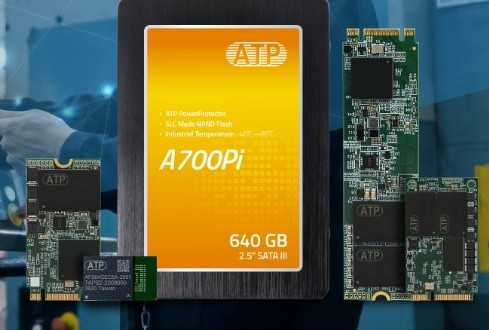
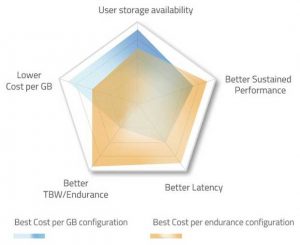
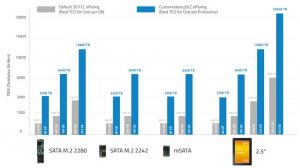
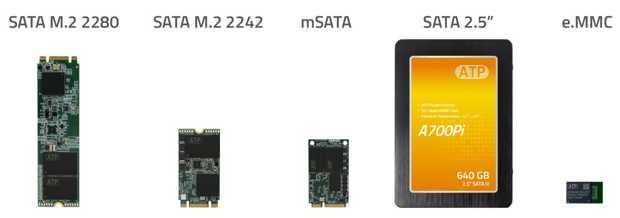
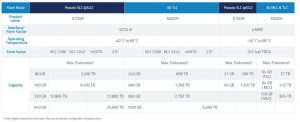





 Subscribe to our free daily newsletter
Subscribe to our free daily newsletter

